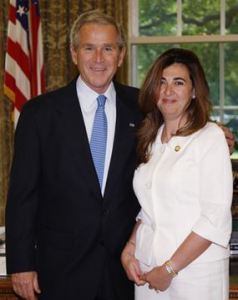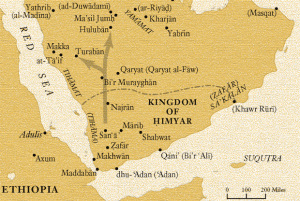Houda Ezra Ebrahim Nonoo (b. 1964) was born in the small Arabian kingdom of Bahrain, to Jewish parents of Iraqi ancestry. She spent a major part of her formative years in Britain, where she went to Jewish school. Nonoo earned her BA and MBA in England, and also married there. After her father died, she returned to Bahrain and took over the family business, growing it ever larger. She was soon a well-noted businesswoman, and the secretary-general of the Bahrain Human Rights Watch Society. From there, she was able to get a seat in Bahrain’s parliament, appointed by the King of Bahrain himself. For over three years, she sat on the Shura Council, which is the upper house of the Bahraini legislature. In 2008, Nonoo was appointed Bahrain’s ambassador to the U.S. This made her the first Jewish ambassador from any modern Arab country. She served in that post for the next five years.
Her cousin and fellow businessman, Ebrahim Daoud Nonoo, also served in Bahrain’s parliament. He is the CEO of the Basma Company, which offers an array of services from security and IT solutions to travel, and custodial services. Meanwhile, he continues to direct the family’s foreign exchange and investment business, together with his siblings. Their Bahrain Stock Company now has 19 branches across the kingdom, and is the country’s main Western Union agent. In 2006, Ebrahim financed the reconstruction of Bahrain’s only remaining synagogue. Today, there are less than 50 Jews left in Bahrain.
Words of the Week
Better a sinful person who knows that he has sinned, than a righteous person who knows that he is righteous.
– Rabbi Yaakov Yitzchak Horowitz, The “Seer of Lublin”




